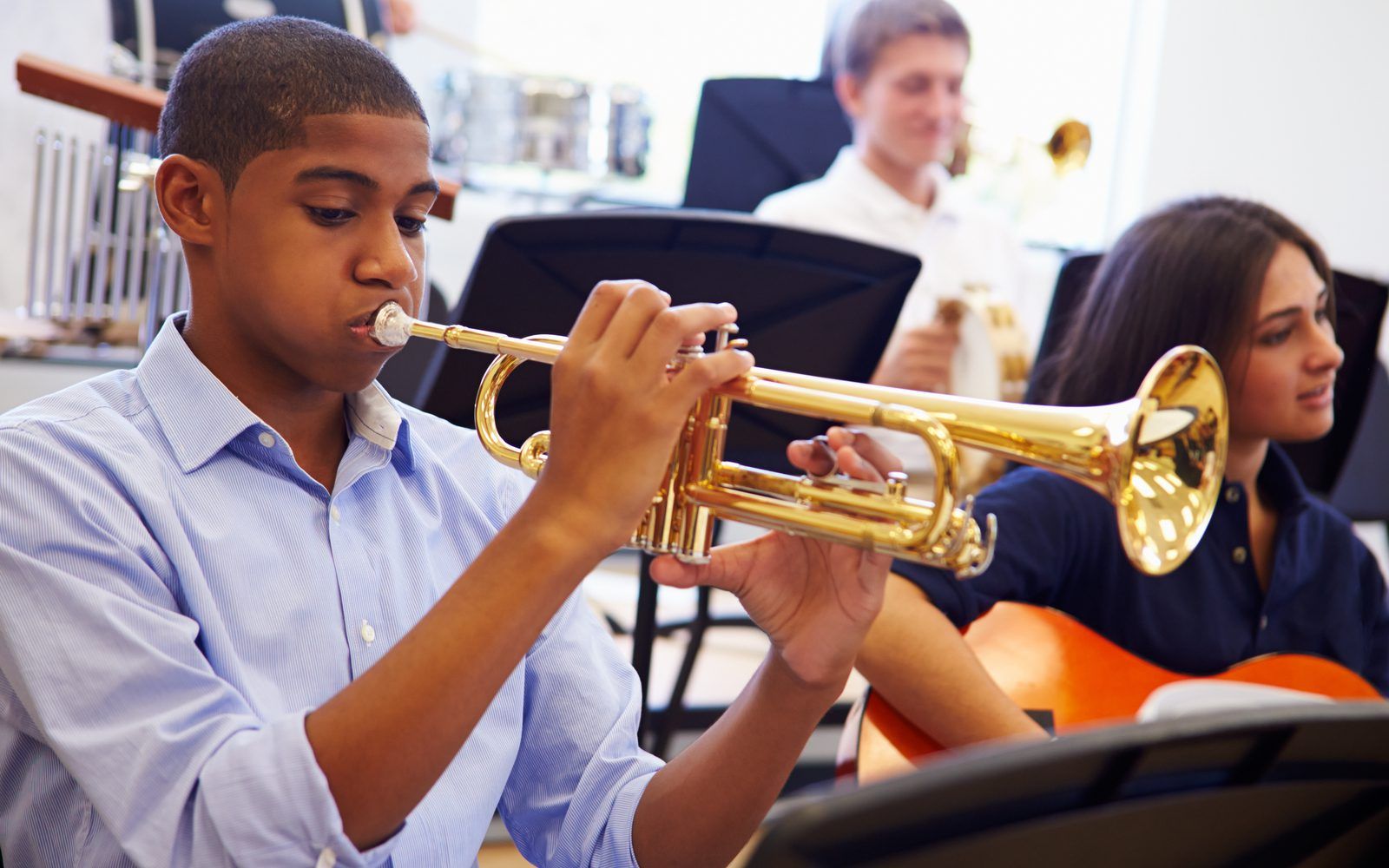How To Keep Making Music in Band With Braces

You recently got orthodontics and are in the band. What’s next? You can return to practice if you are in the string or percussion groups. You may proceed. But if your abilities have placed you in the reed or brass sections, you might need to adjust slightly to maintain your braces and instrument in perfect harmony.
How Braces Can Affect You While Playing Instruments
“Embouchure” refers to how you position and use your lips, tongue, and facial muscles to create the desired sound when playing a wind instrument. Depending on the instrument you perform, getting braces may not affect you, or you may need to adjust your embouchure to make it more comfortable when playing these instruments:
- Woodwinds: Your regular lip positioning or blowing angle may be impacted by your braces if you play a wind instrument like the flute or piccolo, but the transition period is typically relatively brief. Even though some mouthpieces don’t require as much pressure as those on brass instruments, there may still be some getting used to when playing reed instruments like the saxophone, clarinet, oboe, and bassoon while wearing braces. One thing to watch out for is increased condensation in your mouthpiece or instrument; keep it clean to maintain the quality of your tone.
- Brass: For brass instruments, tongue pressure is necessary. Your cheeks will be squeezed between the mouthpiece and your braces. Because of this, many brass players need help adjusting when donning braces. French horn, trumpet, and other smaller mouthpieces demand more pressure than larger ones (tuba, trombone). If you want to prevent cuts, irritation, and other injuries brought on by the pressure of your braces against your lips, it’s critical to acquire proper procedures. You can regain your tone and note range while preserving your lips and mouth by learning to perform with less lip pressure and more air control and breath support.
In addition, there are alternatives to traditional bracket-and-wire braces based on your orthodontic requirements, treatment costs, and length. As long as you get the required hours of wear daily, Invisalign appliances fit comfortably over your teeth and can even be taken out when exercising or playing. In some circumstances, lingual orthodontics may be the best option for you, where the brackets and wires are positioned behind the teeth. Don’t neglect to communicate with your music instructor, too. If you notice that your playing level has decreased, don’t be alarmed. To improve your air and breath support, learn to perform with less pressure on the lips and adjust your embouchure. Talk to your teacher. At first, you might need to cut back on your exercise time, and after your braces are removed, there might be another adjustment period.
How Smiling Kids can Help You Continue Playing Music With Braces.
If you currently perform or intend to play a wind instrument, please inform Dr. Swati Singh. We can provide some recommendations. Some musicians find that adding wax to their standard metal and ceramic braces helps prevent lip and cheek injuries. If wax doesn’t work, brace guards are an option that can be applied over the braces to safeguard your lips and mouth. To make an appointment, call Smiling Kids Pediatric Dental at (317) 580-9199.

